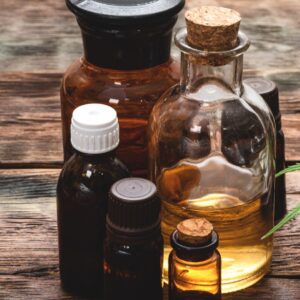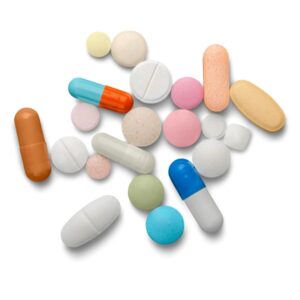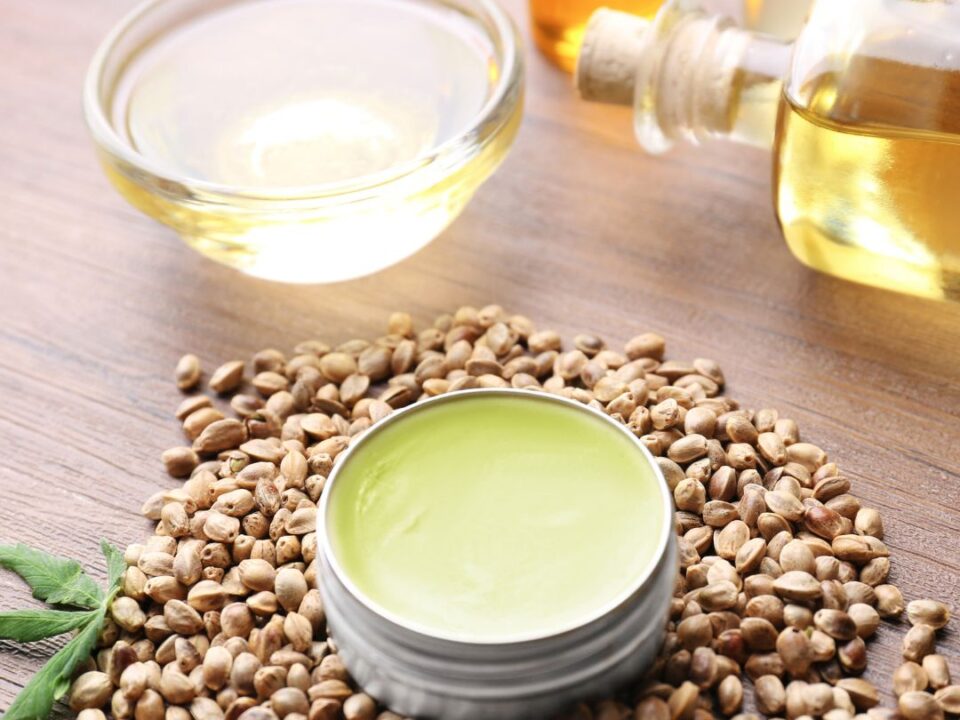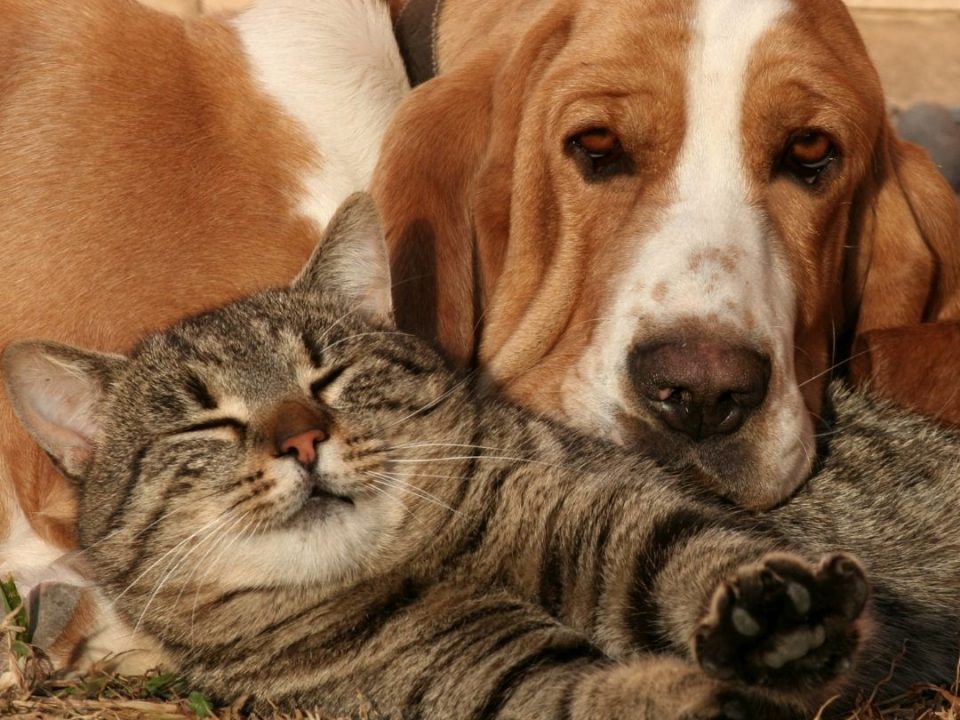
The majority of people are familiar with the term “the munchies”. The munchies is that urge to eat something, that you sometimes get after using cannabis. With the popularity of CBD on the rise, and the fact CBD is derived from the cannabis plant, many are wondering “does CBD cause you to be hungry?”
So, does CBD make you hungry? As with so many things related to CBD, the answer isn’t a simple yes or no. Let’s dive in.
Does CBD Make You Hungry?
If you are trying to watch your weight, using CBD could be a cause for concern. However, using CBD as an appetite stimulant could be incredibly useful for those with conditions that make it difficult to keep weight on. This is where things tend to get complicated. No, CBD won’t make you feel hungry, but it may indirectly increase your appetite.
If you take CBD on a full stomach, unlike THC, it will not send signals to your brain, telling you to hit up the fridge. Even full spectrum CBD does not contain enough THC to make you feel the increase in hunger. It does not interact with the CB receptors in your brain the same way as THC or send the same signals. Therefore CBD will not make you hungry.
The lack of appetite may be a symptom of an underlying condition. CBD has the potential to play a role in bringing things back into alignment here for your appetite and digestive system. CBD works because of how it interacts with your body’s endocannabinoid system. The endocannabinoid system is located all over your body. Your brain, your bones, your skin, your digestive system, the nervous system, etc. The main goal of the endocannabinoid system is to bring about balance within your body. So, if something in your body is not quite right, because of stress or pain for example, which is, in turn, decreasing your appetite, CBD can support the condition and help balance out your appetite.
 Does THC Make You Feel Hungry?
Does THC Make You Feel Hungry?
The THC in Cannabis seems to stimulate the appetite through the production of the hormone called ghrelin. This hormone acts on the appetite centers in the brain to aid in stimulating hunger. In addition, the THC has the ability to impact taste and smell. This combination is beneficial for those who are having trouble getting interested in food at all or have a poor appetite due to underlying conditions.
Despite the fact that THC can temporarily stimulate appetite, there are exceptions to the rule, especially for long-term consumers. While the immediate onset of hunger may be unavoidable, the cannabinoids present such as the THC in cannabis could actually serve to reduce anxiety, thereby potentially decreasing appetite or hunger.
Long-term use of cannabis containing THC can result in positive weight management plus the reduction of anxiety and other ailments.
How Does CBD Effect Metabolism?
Several studies show that CBD can affect the body’s metabolism in a variety of indirect ways. CBD can aid in the body’s breakdown of stored fat cells, thus possibly assisting in weight loss. CBD is able to interact with the body predominantly using the endocannabinoid system (ECS). This system is made up of endocannabinoids, receptors. These receptors are found in both the nervous system and throughout the body. They have also been located in metabolic enzymes, and have been shown to be involved in many physiological processes. The ECS plays a role in metabolic functions such as energy storage and nutrient transport. Some research suggests it may also be involved in managing insulin sensitivity.
Many studies have shown that the endocannabinoid system can stimulate specific areas of the body that are involved in metabolism. Some of these areas include the gastrointestinal tract, skeletal muscles, the endocrine system, and the pancreas, among others. By stimulating receptors in these areas, CBD may subsequently help metabolize the compounds absorbed from food during the digestion period.
 Which Is Better For Appetite… Full Or Broad Spectrum?
Which Is Better For Appetite… Full Or Broad Spectrum?
CBD oil doesn’t necessarily just contain CBD and oil. Cannabis sativa synthesizes over 100 phytocannabinoids, with CBD and THC being two of the most popularly recognized cannabinoids in the scientific and cannabis community. However, there are many other cannabinoids of importance, more specifically CBN and CBG.
When you decide to purchase a CBD product, the product label will identify whether it is a full spectrum or broad-spectrum CBD product, this tells you how much THC, the lack thereof, and the product’s ingredients. Each product will also identify whether or not there are other cannabinoids such as CBN or CBG in the formulation.
Full and Broad Spectrum identifies the various other cannabinoids that work alongside the CBD itself, enhancing the wholesome and entire CBD benefits. Whether CBD is a full spectrum or broad spectrum depends on how it is further processed after its extraction from the Cannabis sativa or hemp plant. While looking to increase appetite, you would most generally be looking for a product that contains many cannabinoids, thus leading you to the complete entourage effect from the CBD product.
Knowing this information is crucial to helping you decide whether broad-spectrum CBD or full-spectrum CBD is the right choice for your daily CBD use.
Because the THC content of most full-spectrum CBD oil is negligible, you may never feel intoxicated from the trace amounts of THC. But be aware that THC might build up in your body’s systems over time, which may be of concern if your employer requires you to not have any THC in your system during required drug testing.
Full-spectrum CBD typically allows consumers to experience the “entourage effect.” The entourage effect is the combination of whole-plant cannabinoids and additional terpenes, and it is quite different from pure CBD that uses CBD isolates only. So, if you don’t mind a bit of THC inside your CBD oil, you may choose to use full-spectrum CBD for your needs.
Full-spectrum CBD works with the entourage effect to aid in the relief of many ailments including poor appetite.
Quite like full-spectrum CBD, the broad spectrum CBD also uses cannabidiol with all the other wholesome compounds found in hemp. However, there is one active ingredient that gets removed after the extraction process, THC.
Broad-spectrum CBD retains many of the different cannabinoids, such as CBN and CBG. Because the broad spectrum also uses additional terpenes and flavonoids, it can generate the entourage effect just like full-spectrum CBD except without the added THC.
Even though broad-spectrum CBD shares similarities with the full-spectrum, it still has that one primary difference that separates it from the other. You may decide to use broad-spectrum CBD if you are looking for whole-plant benefits or entourage effect without any THC content or if you live in a state with stricter cannabis laws.
Broad-spectrum CBD can aid in the relief of many ailments causing poor appetite, and in turn, help your appetite return.
Is Full and Broad Spectrum CBD Legal?
The 2018 Farm Bill removed hemp-derived substances from the Controlled Substances Act, making these products more available to consumers as long as they are not marketed as medicines, among other requirements and restrictions. This legislation loosened the language around the use of hemp derivatives, which makes it easier to provide a wide range of CBD, both broad-spectrum CBD and full-spectrum, as long as the product contains less than 0.3 percent THC to remain within the legal requirements.
 Does the Type of CBD Product Matter
Does the Type of CBD Product Matter
When it comes to the type of CBD product, it is all about personal choice.
Softgels, Capsules, and CBD Oil
Many CBD consumers prefer CBD Softgels, Capsules, or other types of pill form. These products produce the same great results as CBD oil, but without the taste. CBD soft gels, capsules, and pills go straight to the stomach, allowing the CBD to be distributed to the body. The absorption rate is reasonably quick for this type of CBD. Every person’s reaction time to CBD is different, but usually, most people can see results within 1 – 2 hours, with effects lasting 6 – 8 hours.
Pill form CBD offers convenient, consistent, no-mess, and is easier to take with you when traveling or on the go. They are less messy than oil and give more accurate dosing compared to other forms of CBD. They also will get you fewer looks from those who do not understand what you are doing if you take CBD oil with a dropper.
CBD Oil
CBD oil is usually placed under the tongue for a few seconds before it is swallowed. This results in a slightly quicker absorption rate, meaning the CBD enters the bloodstream quicker. Most CBD oil contains an earthy taste, sometimes moderated by a flavonoid such as mint.
CBD Dosing
When determining how much CBD oil you should take, it’s important to understand how the dosage depends on your physiology, symptoms, and the desired effects you would like to achieve. Each person is unique and will experience different effects from the same dose, so it is imperative you find your own personal dose. Start with a small dose and work your way up to a dose that you feel gives you the most benefits.
CBD can aid in the relief of many ailments. With the relief of discomforts, aiding in increasing metabolism, and the way the body breaks down food, CBD most certainly has the potential to affect the appetite. The manner in which your body uses CBD will decide the increase or decrease in appetite.
As with any sort of supplement, we recommend speaking to your medical doctor about whether using CBD makes sense for you. Your doctor can also recommend certain products that align with your needs and help ensure you get the correct dosage.
“These statements have not been evaluated by the Food and Drug Administration. This product is not intended to diagnose, treat, cure, or prevent any disease.”




